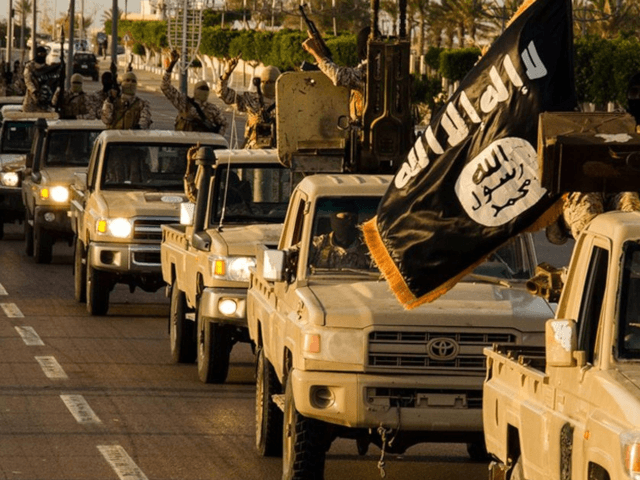U.N. Undersecretary-General for Counter-Terrorism Vladimir Voronkov said on Thursday that the Islamic State (ISIS) remains a serious threat, with a “particularly worrying” show of growing strength in Africa’s conflict zones.
Voronkov said ISIS, which he preferred to call by the Arabic name Daesh, is using “new and emerging technologies” such as surveillance drones and online financial instruments to remain a potent threat, even after its defeat in Iraq and Syria five years ago and the death of its founder, Abu Bakr al-Baghdadi, in a raid ordered by U.S. President Donald Trump in 2019.
Voronkov and the head of the U.N. Security Council’s counterterrorism directorate, Weixiong Chen, made paradoxical points that letting ISIS fighters return to their home countries is spreading the Islamic State’s toxic Islamist ideology and creating terrorist threats everywhere those battlefield-seasoned operatives settle down – but also, keeping ISIS fighters locked up in Iraqi and Syrian prison camps is further radicalizing them and giving the resurgent Islamic State a rich pool of embittered prisoners to recruit from.
Chen warned that ISIS has grown very adept at exploiting “local fragilities and intercommunal tensions,” techniques that have helped the terrorist organization build its strength in Africa quickly, as it plays on local political instability and long-standing tribal feuds.
As for its financial situation, Chen said the Islamic State is raising money through its time-tested methods of “extortion, looting, smuggling, taxation, soliciting donations and kidnapping for ransom.”
ISIS is also increasingly skilled at using various forms of social media and online financial instruments. In September, ISIS created its first known non-fungible token (NFT), a digital “trading card” that praised Islamic State jihadis for pulling off an attack in Afghanistan. ISIS operatives have infiltrated popular video game platforms to spread their ideology and recruit new members.
The Islamic State found fertile ground in Africa to rebuild its strength after its defeat in the Middle East. An exceptionally well-funded splinter group known as the Islamic State in West Africa Province (ISWAP) grew out of the notorious Boko Haram gang in Nigeria to become a major regional threat. The U.S. Treasury Department in November announced sanctions against four members of an ISIS cell in South Africa that has ties to several South African corporations.
In late January, U.S. Special Forces operators killed a senior ISIS operative known as Bilal al-Sudani in Somalia. Secretary of Defense Lloyd Austin said the target was “responsible for fostering the growing presence of ISIS in Africa and for funding the group’s operations worldwide, including in Afghanistan.”
Sudani’s unit served as the financial and administrative hub for ISIS operations across central Africa, as well as a bridge to the Middle East. The group controlled a number of Somali businesses that were used to move its money around, and some of its bloodiest terror attacks were launched against legitimate firms that refused to pay it protection money.
One of the ISIS allies supported by Sudani’s network was the Allied Democratic Forces (ADF), an Islamist insurrectionist gang in the Democratic Republic of Congo (DRC). The Allied Democratic Forces are one of several militant groups that have turned the Congo into a bloodbath and may yet succeed in destabilizing all of Central Africa.
The ADF’s ultimate goal is to overthrow the governments of the DRC and Uganda to create a new “caliphate” like the one ISIS created in Iraq and Syria. Counterterrorism analysts say the ADF was fading out before Sudani’s ISIS network began sending it money in 2017.
The Institute for Security Studies (ISS) noted in October that half of the terrorist attacks claimed by ISIS over the past year were perpetrated in African nations, with especially heavy activity in the Lake Chad Basin, the region that includes Cameroon, Chad, Niger, and Nigeria.
ISIS is reportedly attempting to forge alliances with other major regional terrorist groups and criminal gangs, an effort that could quickly make ISIS even more of a threat if it succeeds. ISS cited recent Islamic State publications that urged its members to relocate to Africa and help establish a new “caliphate” there.

COMMENTS
Please let us know if you're having issues with commenting.